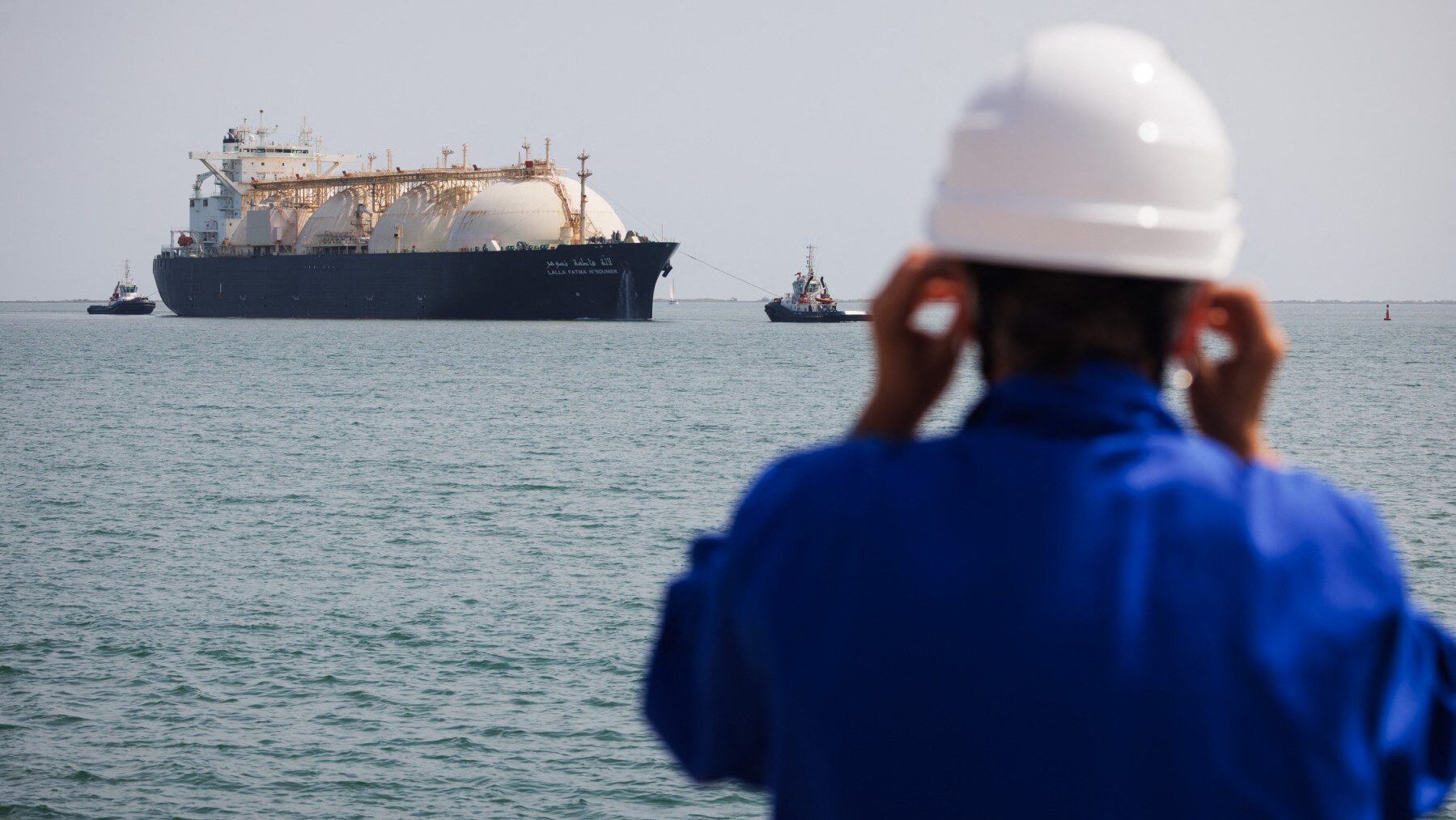
Tanker approaching a French LNG terminal in Fos-sur-Mer.
Photo: Clement Mahoudeau / AFP
For the first time since Russia invaded Ukraine, the European Commission is proposing to include liquified natural gas (LNG) in a sanctions package against Russia. It’s unlikely, however, that a consensus can be easily reached among the member states, as large Western European countries are the primary consumers of Russian LNG and have been increasing their import volumes over the past year.
The Commission’s planned sanctions included in its upcoming 14th sanctions package wouldn’t directly ban the import of Russian LNG, but only prohibit its re-export after it entered the EU, forcing Moscow to rethink its global supply chains and, the hope is, lose money in the process. In contrast, natural gas carried to Europe by pipelines would remain unaffected.
So far, natural gas has remained untouched by the EU’s sanctions packages despite early attempts to limit Russian exports as Brussels understood that gas represents a vital energy source for too many member states. Previous packages included bans on Russian coal and seaborne crude oil only.
The newly proposed gas sanctions also appear to look relatively mild. Russian gas accounts for 15% of the EU’s imports, but nearly two-thirds of the total volume arrives through pipelines and would therefore not be subject to any proposed sanctions, while any EU country with the capacity to import LNG may continue to do so, as the new rules would only prohibit re-selling it to each other and the rest of the world.
Still, such a restriction might be too much for several member states to agree to. The vast majority (87%) of Europe’s Russian LNG enters the EU through only three countries—France, Spain, and Belgium—which not only supply it to their neighbors but are also major redistribution hubs toward Asia.
This means that while the Commission estimates that Russia would lose around €2 billion a year because of the sanction—some 28% of Russia’s LNG profits—these three countries would also be deprived of considerable re-export profits, making their support for the proposal uncertain, to say the least.
EU ambassadors are set to discuss the proposal on Wednesday, May 8th, but it’s unlikely that the Council will come to an understanding any time soon. Some of the largest member states are supporting the idea—including Germany and Poland, who unilaterally phased out Russian LNG already; as well as Italy which said it was ready to do so if needed—but France and Spain will be hard to convince to give up their lucrative business for the common good.
Still, mainstream media will have you believe that the plan might fail because of “Russia-friendly” sovereigntists in Central Europe again. Politico’s coverage mentions Hungary’s historical opposition to sanctioning Russian gas twice, heavily implying that the whole debate might come down to a single Hungarian veto. What the news site fails to mention is that Hungary only imports pipeline gas from Russia and has even publicly stated it would support the plan if it comes to a vote as LNG sanctions don’t threaten any of Budapest’s national interests.
Spain, France, and Belgium, on the other hand, not only account for nearly all of the EU’s LNG imports from Russia but have also been increasing their import volumes in recent years. In 2023, Russian LNG comprised 16% of the EU’s total supply, which is a 40% increase compared to the pre-war sales in 2021.
